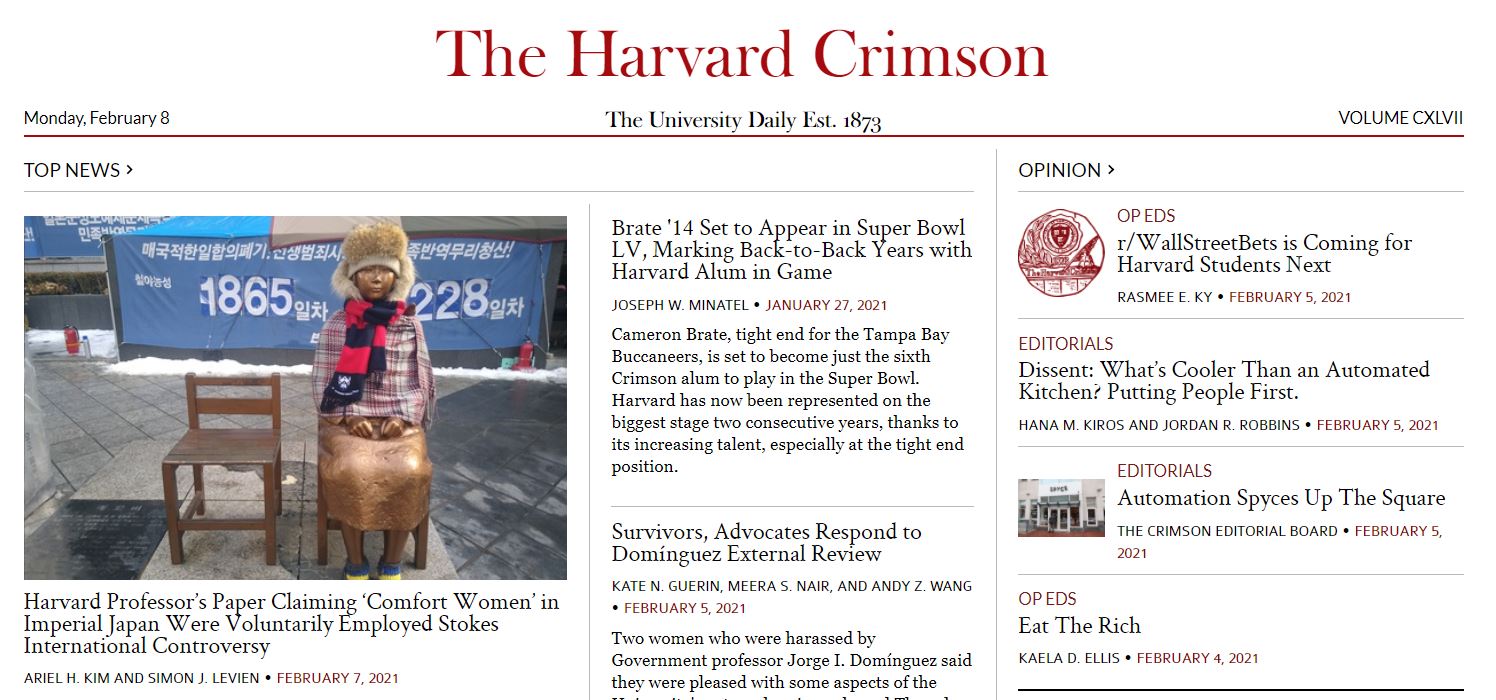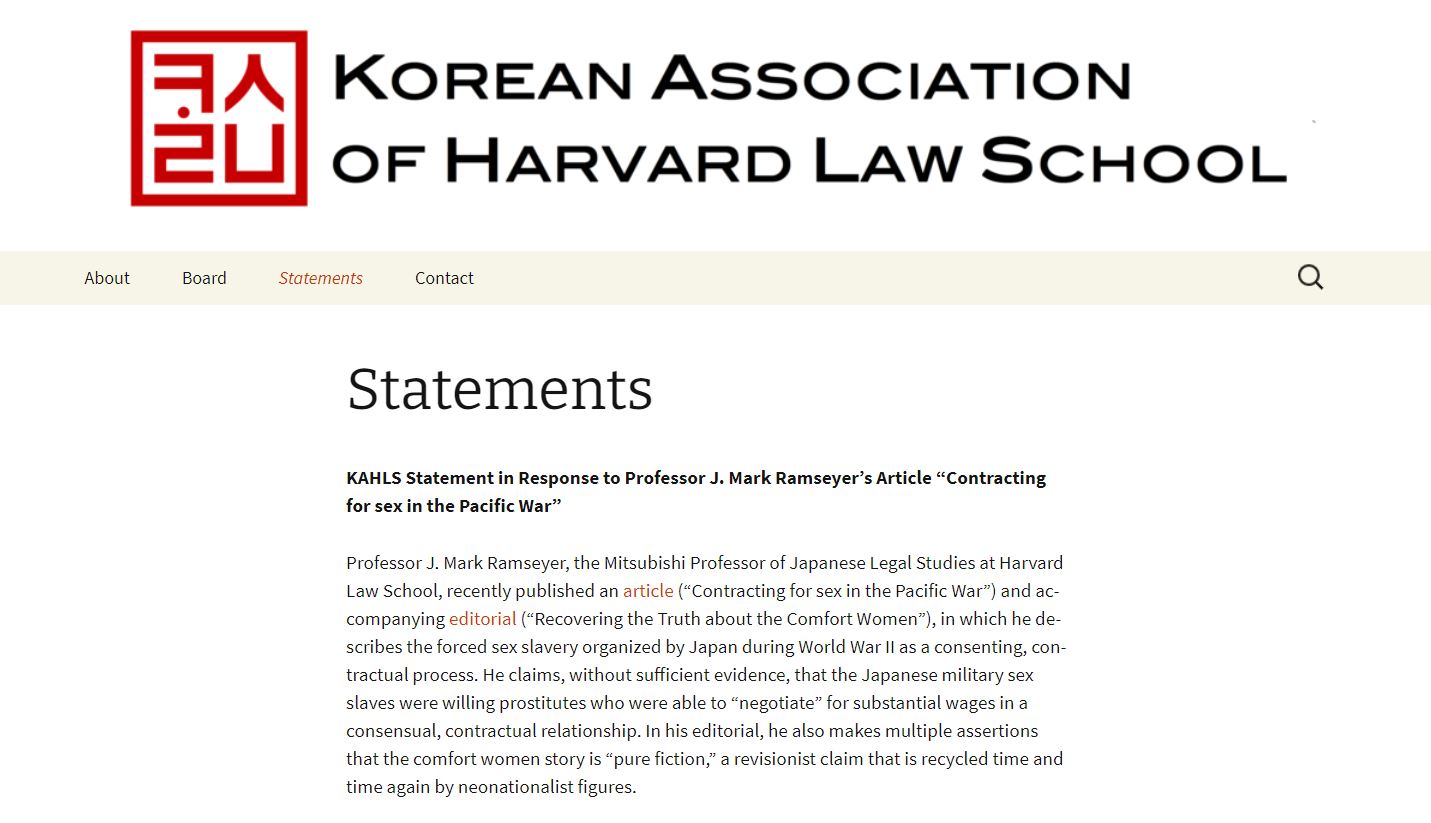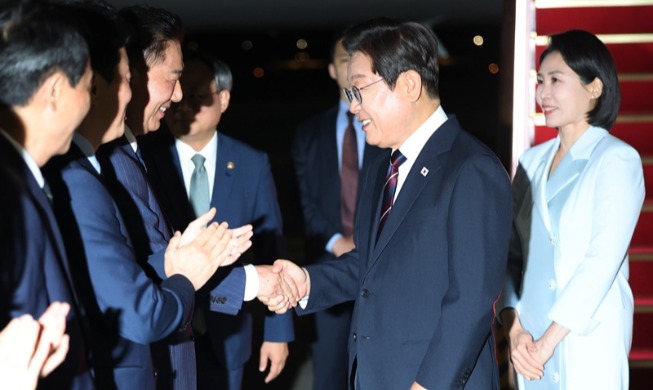
The Harvard Crimson, the student daily of Harvard University, published on Feb. 7 an article blasting the school's professor John Mark Ramseyer, for calling Japan's sex slave victims "willing prostitutes." (Screen capture from newspaper's website)
By Kim Hyelin and Lee Jihae
Outrage is growing over the claim of John Mark Ramseyer, an American professor at Harvard Law School, that women forced into sexual slavery by the Japanese military in the early 20th century were "willing prostitutes."
The Harvard Crimson, the student newspaper of Harvard University, on Feb. 7 posted an article titled "Harvard Professor's Paper Claiming 'Comfort Women' in Imperial Japan Were Voluntarily Employed Stokes International Controversy," blasting Ramseyer's assertions.
The article said legal scholars and historians in Korea and the U.S. cited many flaws in the professor's paper and questioned his sources.
Carter J. Eckert, a professor of Korean history at Harvard, called the paper "woefully deficient, empirically, historically, and morally." He added that he and fellow Harvard history professor Andrew Gordon are "preparing a critical response to Ramseyer's article" at the request of The Crimson.
Alexis Dudden, a professor of Japanese and Korean history at the University of Connecticut, criticized Ramseyer's paper as a "poorly resourced, evidentially fatuous piece of scholarly production," adding, "It is conceptually misguided, because he's not understanding not only the context, but what actually happened."

The Korean Association of Harvard Law School (KAHLS) on Feb. 4 released a statement on Ramseyer's paper, saying, "We, and the undersigned, strongly condemn the deliberate erasure of human rights violations and war crimes." (Screen captured from KAHLS website)
The Korean International Students Association (KISA) of Harvard said in its own statement written in both Korean and English that Japan's sexual slavery was a crime against humanity that must never be repeated anywhere in the world. KISA said any attempt to justify or deny this undermines universal human values.
In his paper titled "Contracting for sex in the Pacific War," Ramseyer claimed that the women in question demanded short-term contracts since they were going to war and that the brothels demanded from the women contracts with incentives.
He said both sides entered contracts of one or two years under the condition of a large advance sum, and that the women could leave their jobs early if they earned enough income.
kimhyelin211@korea.kr
Most popular
- Military discharge sets stage for reunion of all 7 BTS members
- 'We are back!' BTS Festa heralds hyped return of K-pop phenom
- Presidents Lee, Trump discuss tariff deal in first phone talks
- President Lee leaves for G7 Summit in Canada on first int'l trip
- 'Maybe Happy Ending' wins 6 Tonys including Best Musical
